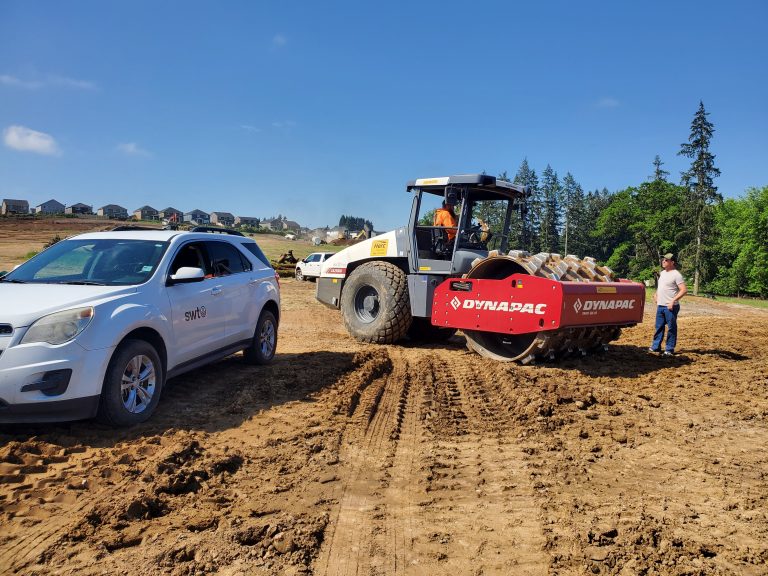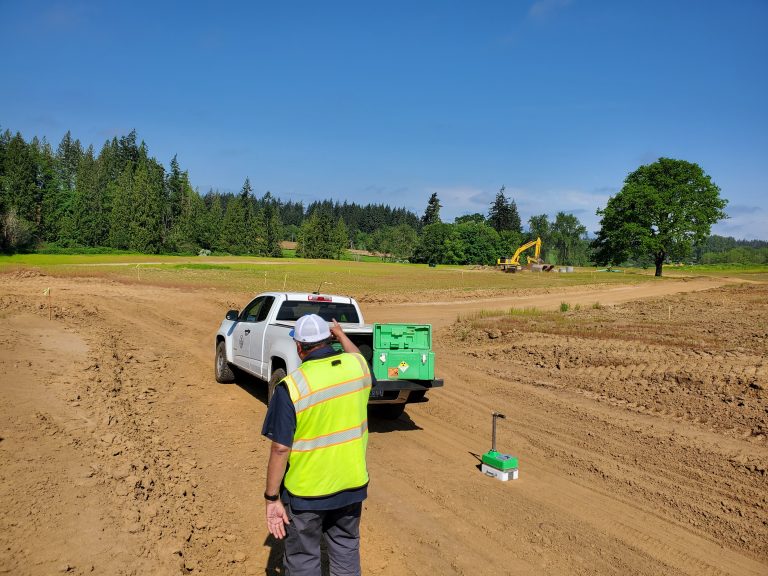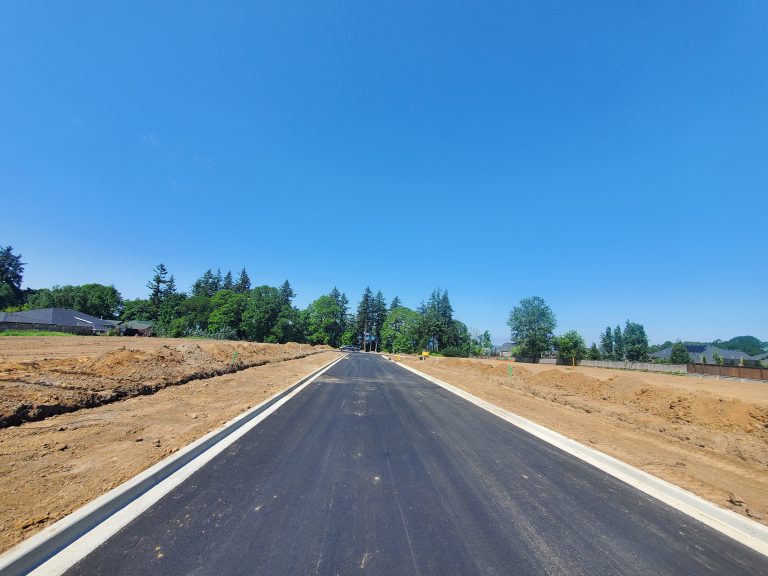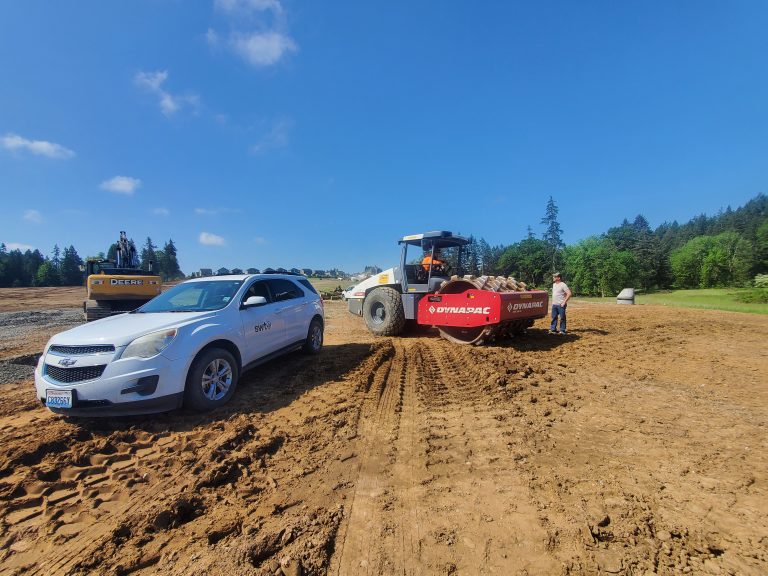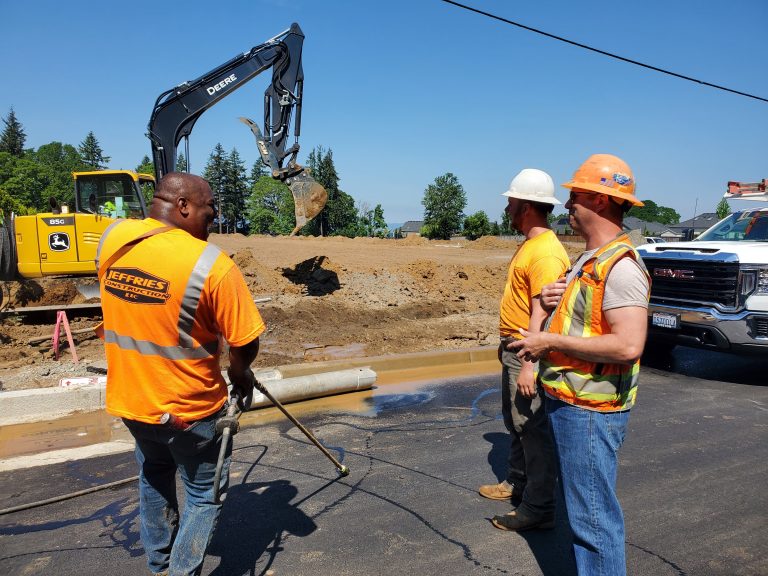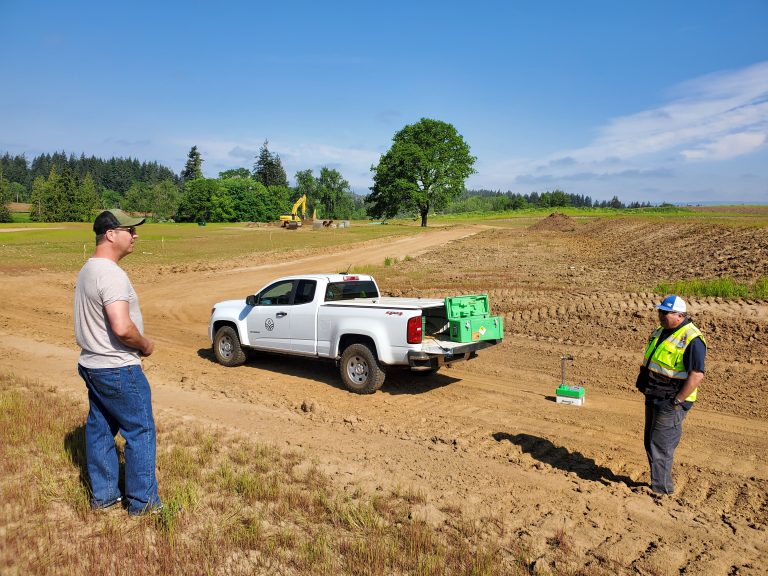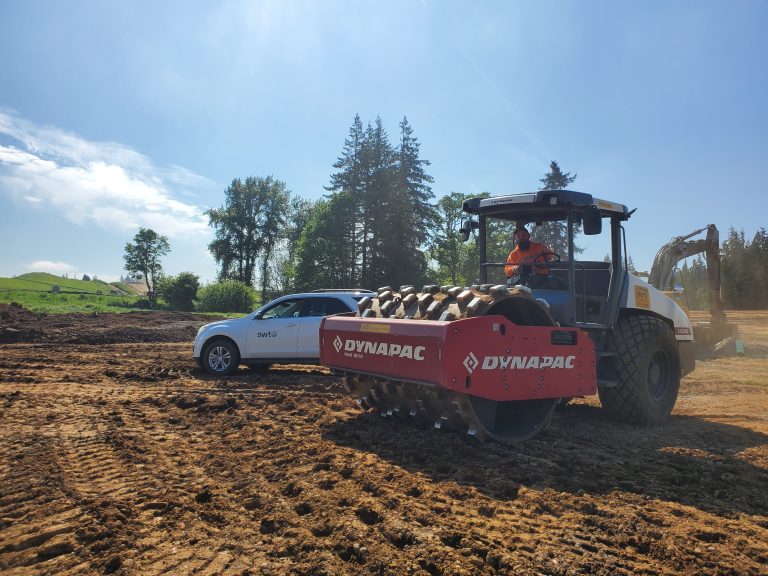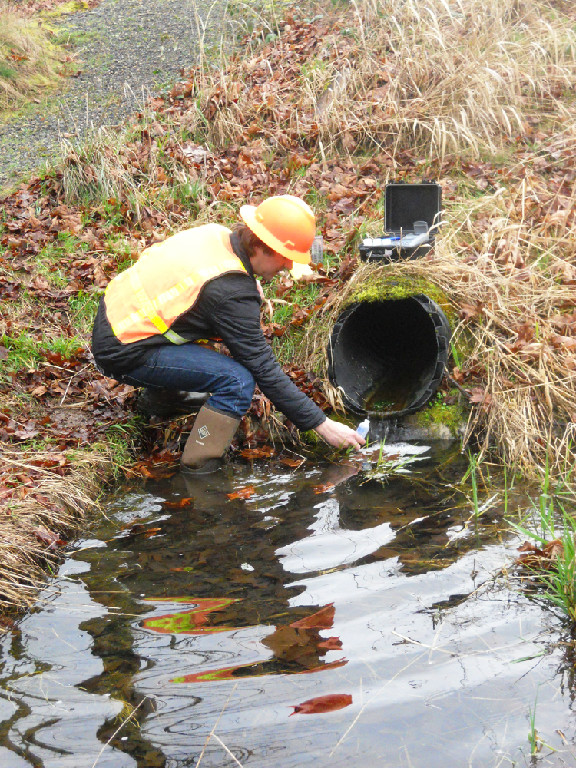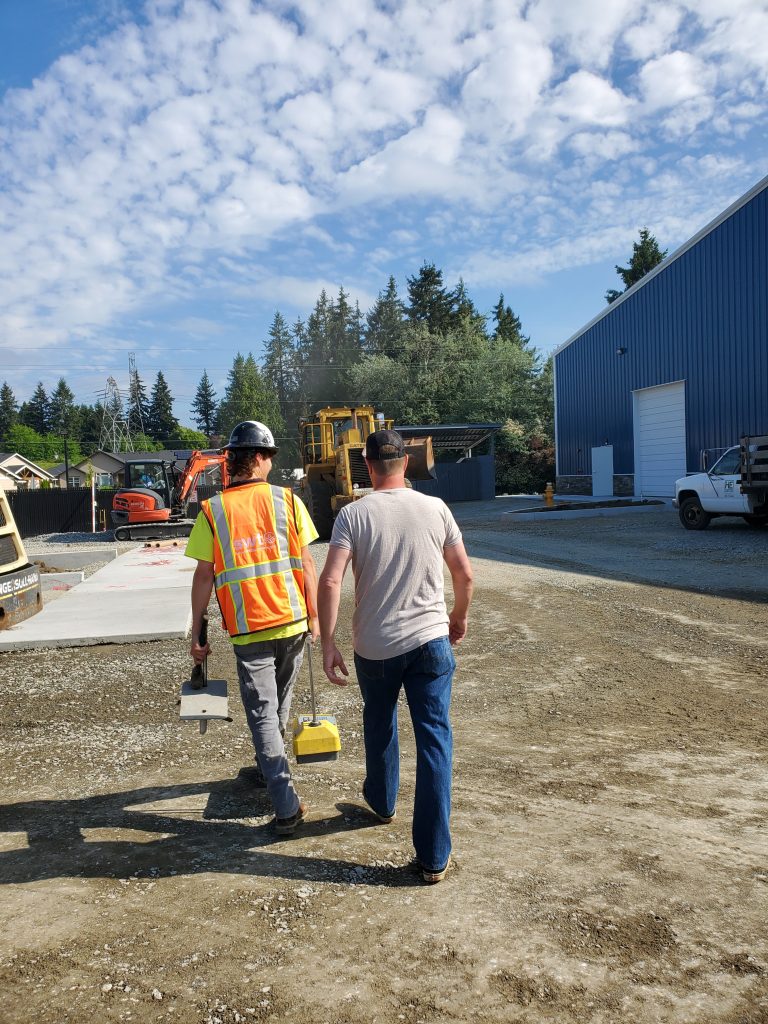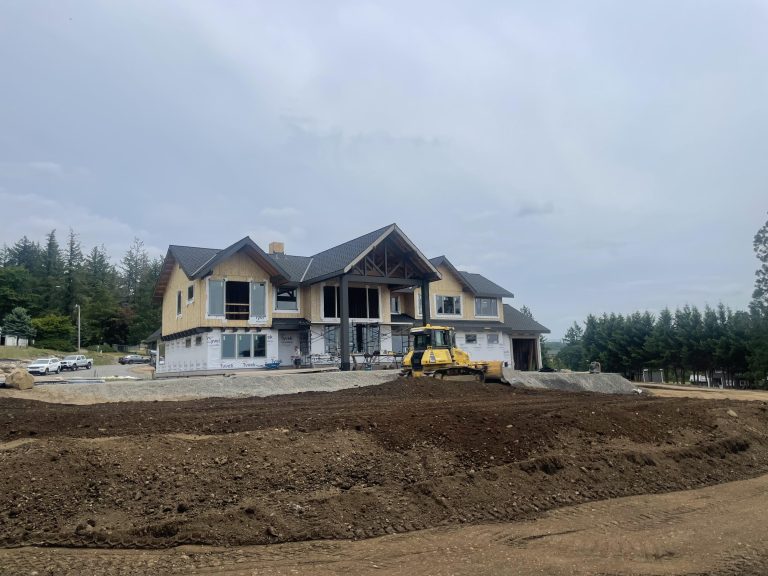Erosion and Sediment Control Contractor in SW Washington
Understanding the Basics of Erosion Definition of Erosion At Swt.ski, we examine erosion from a comprehensive lens. Erosion, in essence, is the process where wind, water, or other natural agents gradually wear down soil, rock, or land. It plays a pivotal role in the natural process of landscape formation, shaping mountains, valleys, and coastlines that define our environment. Erosion manifests in primarily two forms: chemical and physical. Chemical erosion involves the transformation and breakdown of rocks and soil through chemical reactions often resulting from changes in the environment such as acid rain. Physical erosion, on the other hand, refers to the mechanical wearing away of the earth’s surface. Natural forces like water flow, glaciers, and wind are the primary catalysts, physically moving sediments from one location to another. Understanding these fundamental aspects of erosion is foundational for the development of effective sediment control and stormwater management strategies aimed at minimizing the adverse impacts of this natural process on our built environments. Causes of…
Soil Materials Engineers Help Control Erosion in SW Washington
Soil Materials Engineers In SW Washington Who are Soil Materials Engineers? Soil materials engineers are a specialized group of professionals who possess a deep understanding of the physical and chemical characteristics of soil and earth-based materials. This expertise is essential in the realm of construction and environmental initiatives, where precise knowledge about the ground beneath our feet determines the success or failure of a project. At SWT.ski, soil materials engineers assess the soil’s capacity to filter and purify stormwater, evaluate potential contaminants, and contribute to the design of systems that retain or detain stormwater for treatment. Their work is crucial to our mission. It aligns with the National Pollutant Discharge Elimination System (NPDES) by ensuring that stormwater management practices comply with regulatory standards and protect water quality. Their insights directly influence the development of sustainable urban landscapes and bolster our efforts to realize green infrastructure projects within the community. Their role extends beyond mere analysis; soil materials engineers at SWT.ski are engaged in…
The Expert’s Guide to Soil & Water Engineering Needs in Clark County
Soil and Water Engineering What is Soil and Water Engineering? Soil and water engineering is an interdisciplinary field that applies engineering principles to the preservation and management of soil and water resources. The goal is to address a wide array of challenges, such as water supply and quality, wastewater treatment, agricultural water management, erosion control, and land development. Soil and water engineers are responsible for designing, implementing, and overseeing projects that maintain, restore, or improve the natural environment. These responsibilities involve: Their work demands a combination of civil, environmental, and agricultural engineering expertise, making this profession inherently multidisciplinary. At SWT, our collaboration with soil and water engineers facilitates the deployment of advanced, sustainable practices for stormwater management, ensuring compliance and promoting environmental stewardship, particularly in regions like Clark County where infrastructure and natural resources are integrally linked. Importance of Soil and Water Engineering Soil and water engineering is integral to managing our natural resources and ensuring public health and safety. These engineers design…
Understanding NPDES Permitting: Safeguarding Our Waters
What do you need to know about NPDES Permitting in Clark County or Cowlitz County? Water is, without a doubt, one of the most vital resources on Earth. Ensuring its purity and safety is crucial not only for human health but also for the health of our environment. In the United States, one of the primary instruments in place to protect our waters from pollution is the National Pollutant Discharge Elimination System (NPDES) overseen by the Environmental Protection Agency (EPA). In this article, we dive deep into the NPDES, shedding light on its significance, workings, and importance. What is NPDES? The National Pollutant Discharge Elimination System (NPDES) is a regulatory program designed to address water pollution by regulating point sources that discharge pollutants into waters of the United States. Established in 1972 as part of the Clean Water Act, the NPDES program mandates that certain facilities hold permits if their discharges go directly to surface waters. How Does NPDES Work? The primary objective…
Turbidity Testing and pH Testing: A Brief Overview
Both turbidity and pH testing are essential methodologies employed in the assessment of water quality. Each provides critical information about different aspects of water’s physical and chemical characteristics. Let’s delve into each one individually. 1. Turbidity Testing Definition:Turbidity refers to the cloudiness or haziness in a fluid caused by the presence of suspended and particulate matter, which are usually invisible to the naked eye. The higher the turbidity level, the murkier the water appears. Testing Method:Turbidity is typically measured using a nephelometer, a device that assesses the scattering effect caused by the suspended particles in water. The unit of measurement is the Nephelometric Turbidity Unit (NTU). Importance: 2. pH Testing Definition:The pH value indicates the acidity or alkalinity of a solution on a scale of 0 to 14. A pH of 7 is considered neutral. Values less than 7 indicate acidity, while those greater than 7 signify alkalinity. Testing Method:pH can be measured using various methods: Importance: You need Turbidity and pH Testing…
Material Testing & Inspection: An Essential Guide for Building Projects
When undertaking any construction project, be it a towering skyscraper or a comfortable family home, ensuring the integrity of the building materials and the ground upon which the structure stands is paramount. Soil and material testing and inspection play a pivotal role in determining the feasibility, safety, and longevity of any structure. In this article, we delve deeper into the importance of these tests and inspections, highlighting key sub-topics such as compaction testing, special inspections, and concrete testing, among others. 1. Compaction TestingCompaction testing determines the density of the soil in a specific location, ensuring that the ground is capable of bearing the weight of a proposed structure. An inadequately compacted soil can lead to settling or even catastrophic foundation failures. During this test, soil samples are collected and analyzed to determine their compaction characteristics. Based on the results, engineers can determine if additional compaction is needed or if other soil stabilization measures should be undertaken. 2. Special InspectionsSpecial inspections refer to a…
Stormwater Management Strategies In Portland, Oregon
The Importance of Stormwater Management Under the Joint Source Control Strategy, the Department of Environmental Quality (DEQ), along with cleanup sites, public agencies and the city of Portland, is tasked with managing upland sources impacting the Willamette River in the Portland Harbor area. This is of high concern as stormwater serves as a significant pathway for contaminants. The DEQ has implemented numerous protocols for stormwater evaluation and sediment sampling to aid in this endeavor and ensure compliance with regulations. Understanding stormwater management is central to both preventing flood risks and maintaining a healthy geosphere. Cost-effective solutions often include best management practices like utilizing green infrastructure, maintaining catch basins and selecting appropriate facilities to process stormwater. Evaluating and implementing these practices is what makes stormwater management essential to not only the city of Portland but any urban environment. Understanding the Natural Hydrologic Cycle The natural hydrologic cycle plays a pivotal role in stormwater management. In simpler terms, stormwater is just a part of the natural water cycle. It originates…
Portland Stormwater Management Resources
Why Stormwater Management Matters Stormwater management is a critical aspect when it comes to preserving and maintaining the quality of both surface water and groundwater resources. It holds paramount importance not only for environmental conservation but also for public health protection. Effective management of stormwater helps in mitigating the potential risks associated with flooding and erosion, thereby safeguarding infrastructure and property. Moreover, it aids in the reduction of pollution levels in our water bodies, ensuring they continue to serve as vital habitats for diverse aquatic life. When managed effectively, stormwater can also serve as a valuable resource. It can be captured, and reused for various non-potable applications, thus creating an alternative water supply source that aids in decreasing the pressure on our depleting freshwater resources. For a city like Portland, where water plays a significant role in the socio-economic fabric, a planned and systematic approach to stormwater management is pivotal. Portland’s Unique Geographical Challenges Portland, located in the northwestern region of the United States,…
Storm Water Resources in Clark County, Washington
Importance of Storm Water Management In the face of the evolving urban landscape and climate phenomena, ‘storm water management‘ plays a pivot role in maintaining the environmental balance and community health. It involves the control and diversion of rainwater runoff to mitigate flooding, reduce erosion, and improve water quality. Timely and efficient storm water management is vital to prevent contamination of water bodies, protect ecosystems, and uphold compliance with regulations. Particularly in regions experiencing significant rainfall, like Clark County, Washington, proper management of storm water is absolutely essential. Improper handling of storm water often leads to the overflow of drainage systems and exacerbation of water pollution, negatively impacting both human and aquatic life. Brief Overview of Clark County Located in the southwestern region of Washington State, Clark County, is named after the famous explorer William Clark of the Lewis and Clark Expedition. With a population nearing half a million, it is one of the fastest-growing counties in the state. The county’s terrain is diverse,…
Geotechnical Engineering in Home Building
Building a home is a dream come true for many. It’s not just about constructing walls and roofs; it’s about creating a space where memories are made, and families grow. However, beneath the surface, there lies a critical aspect that often goes unnoticed but plays a pivotal role in the stability and longevity of your dream home – Geotechnical Engineering. In this blog post, we will explore what geotechnical engineering is and why it’s indispensable for home builders. We’ll also highlight the expertise of SWT Geotechnical Engineering, based in Vancouver, WA, as a valuable resource in this field. What is Geotechnical Engineering? Geotechnical engineering is a branch of civil engineering that deals with the study of the Earth’s materials, their properties, and their behavior under different conditions. It encompasses the evaluation of soil, rock, and groundwater to determine their suitability for construction projects. Geotechnical engineers work to understand how the ground will respond to the loads and forces imposed by structures like buildings,…

